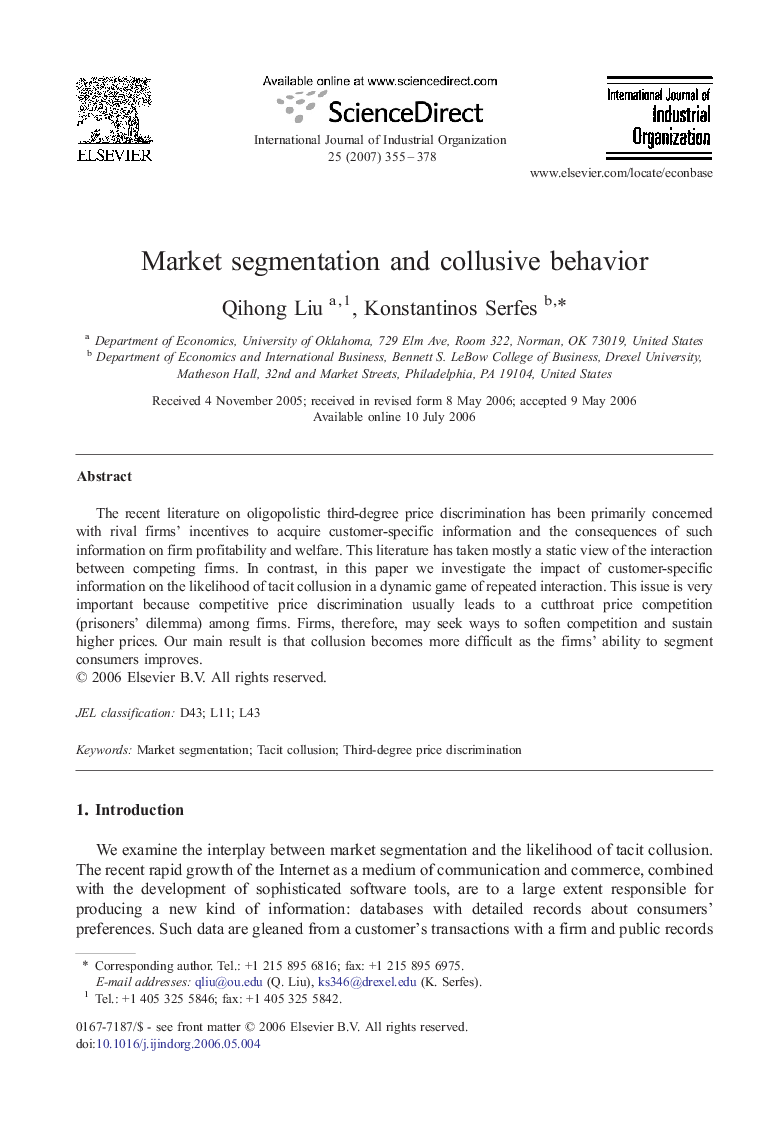| Article ID | Journal | Published Year | Pages | File Type |
|---|---|---|---|---|
| 5078694 | International Journal of Industrial Organization | 2007 | 24 Pages |
Abstract
The recent literature on oligopolistic third-degree price discrimination has been primarily concerned with rival firms' incentives to acquire customer-specific information and the consequences of such information on firm profitability and welfare. This literature has taken mostly a static view of the interaction between competing firms. In contrast, in this paper we investigate the impact of customer-specific information on the likelihood of tacit collusion in a dynamic game of repeated interaction. This issue is very important because competitive price discrimination usually leads to a cutthroat price competition (prisoners' dilemma) among firms. Firms, therefore, may seek ways to soften competition and sustain higher prices. Our main result is that collusion becomes more difficult as the firms' ability to segment consumers improves.
Related Topics
Social Sciences and Humanities
Economics, Econometrics and Finance
Economics and Econometrics
Authors
Qihong Liu, Konstantinos Serfes,
